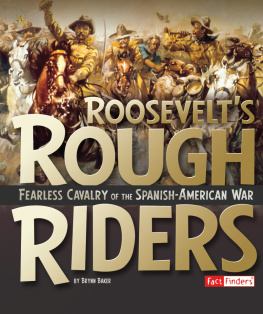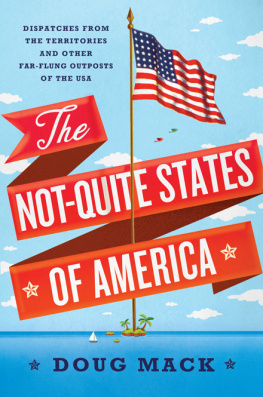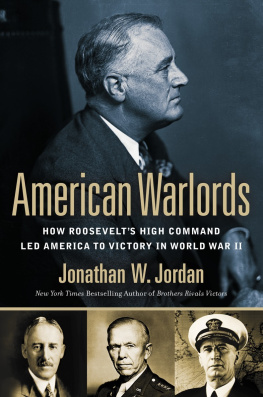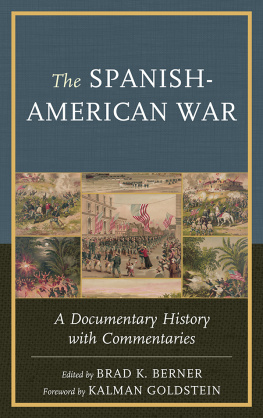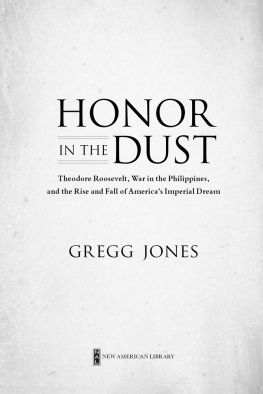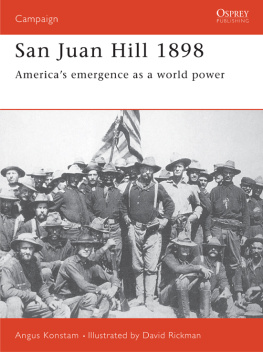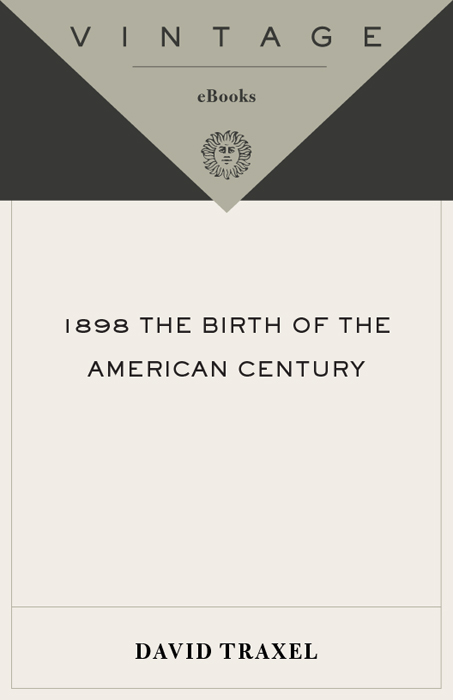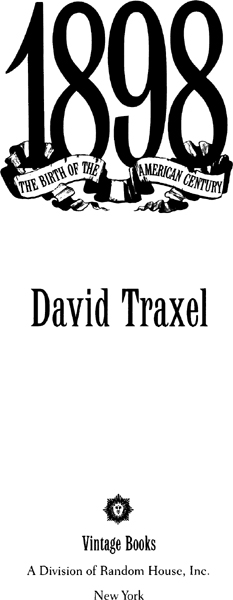Preface
This is a book about one of those rare years, such as 1846 and 1861, that have changed the course of American history. Great economic and social forces had been gathering strength for decades: men and women just reaching early middle age had grown to maturity while the United States was being transformed from an agricultural society guided by natural rhythms into an increasingly frenetic industrialized one ruled by clocks and stopwatches. By 1898, natures nation, as it had always prided itself, appeared to have become a paragon of technological innovation and commercial power.
During these same few decades its population changed in composition from a chiefly Protestant Anglo-Saxon people to a polyglot amalgamation of all the worlds races and creeds, while the gap between rich and poor widened alarmingly. Independence and individuality, qualities highly prized by Americans, came under attack from the giant corporations beginning to dominate the economy, enterprises that seemed to be interested only in turning citizens into consumers. All these enormous mutations occurred domestically while a perplexing and dangerously unstable world developed outside the countrys borders. Powerful imperial nations arose, armed with modern weapons that seemed capable of conquering both space and time, turning the oceans that had long served as protective moats into potential highways for aggression. It was an uncertain time when anything seemed possible.
Young Americans in the 1890s saw such developments as both threats and opportunities. Their own nation was a confused mix of civilization and barbarism, of economic strength and military weakness, of patriotic unity and alienating diversity, but, even though harboring an angry sense of inferiority to Europe, they remained confident that the United States was the last best hope of mankind. Impatient with, yet in awe of, their elders, young males felt that new conditions required new approaches, and they were also driven by a fierce longing to match or surpass the glorious military achievements of their fathers in the Civil War. Their sisters and sweethearts aspired to prove their worth by correcting the world in their own manner.
As a result of these pressures and desires the nation would turn from a long history of isolation and preoccupation with its own affairs to active foreign involvement and the challenges of being a world power. During twelve months of rich confusion, wild contradiction, and violent change, the United States in 1898 advanced from being viewed as a country of sharp-dealing businessmen with a second-rate military and little international influence to acknowledgment as a respected member of the imperialists club, alongside Great Britain, France, Japan, and Germany. It was the first and necessary step in making the twentieth century the American Century.
I have attempted to render a portrait of America in 1898, warts and all, that depicts its people as individuals, as men and women acting from a sense of personal freedom. In telling their stories, I have avoided any overarching theory or analytical approach that would make decisions and events seem orderly, predictable, and exclusively determined by large impersonal forces. Luck, contingency, and individual initiative also played their parts.
W RITING A BOOK of history entails large obligations that are a pleasure to acknowledge. Staff at the Joseph W. England Library were always ready with expert assistance. Philip Gerbino and Charles Gibley proved flexible and supportive, while William Walker demonstrated again his knowledge and appreciation of history as well as superb administrative skill. Alan Misher and Garnett McCoy also deserve recognition for their support of the humanities. Robert Harding and David Greenways comments on several early chapters were a great help. Samuel McIlvain, Chris Scornavaca, and Tania Lee provided interesting material that found its way into the text. Robert McCracken Peck rendered support in numerous ways, including bringing a relevant lucky charm back from Ulan Bator. Marion Friedman, Sam Gugino, Mary Lee Keane, Caruso Kimballi, Lisa S. Lustgarten, Edward McIlvain, Joshua McIlvain, Amalie Rainey, Anne Ranck, Tony and Susan Scirica, Becky Sinkler, and Anne Taylor were always there when needed. The most needed of all, and the one without whose support this book could not have been written, is Rosemary Ranck.
I would also like to thank the Smithsonian Institution, the Fulbright Commission, the National Endowment for the Humanities, and the Camargo Foundation for grants that prepared me to understand, however imperfectly, the issues and events I have dealt with here. All faults of fact or interpretation, of course, remain solely my own.
PROLOGUE
Hail thee, city born today,
Commercial monarch by the sea,
Whose throne is by the Hudsons way,
Mid thousands homesteads joind to thee.
Opening of Ode to Greater New York



